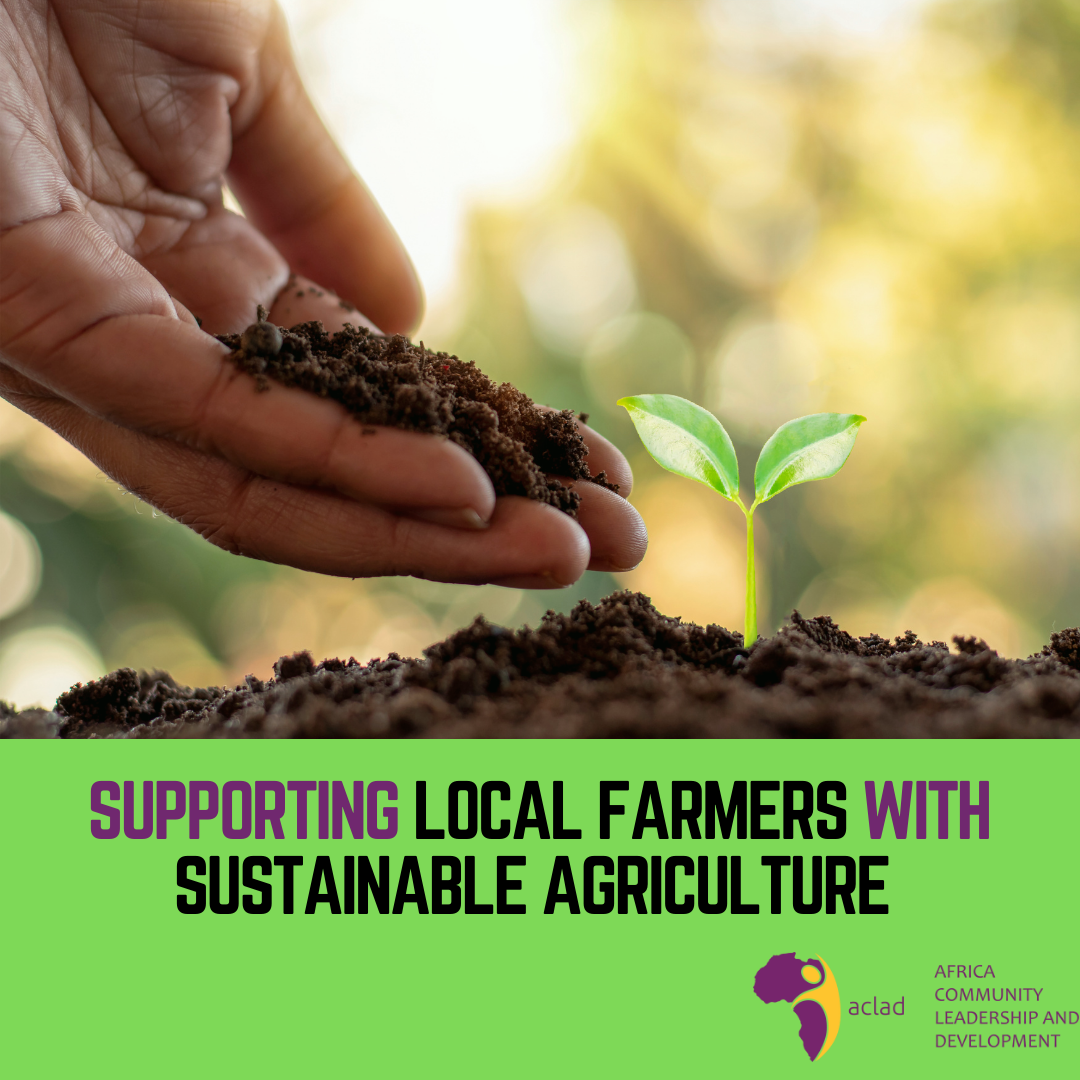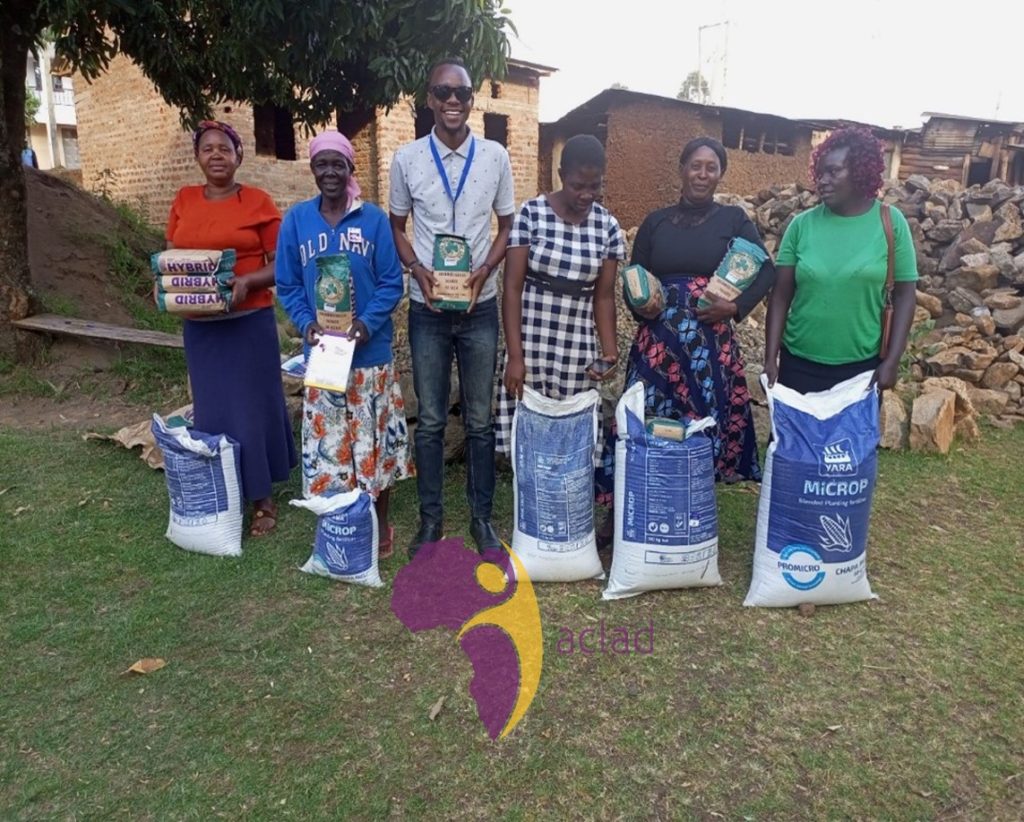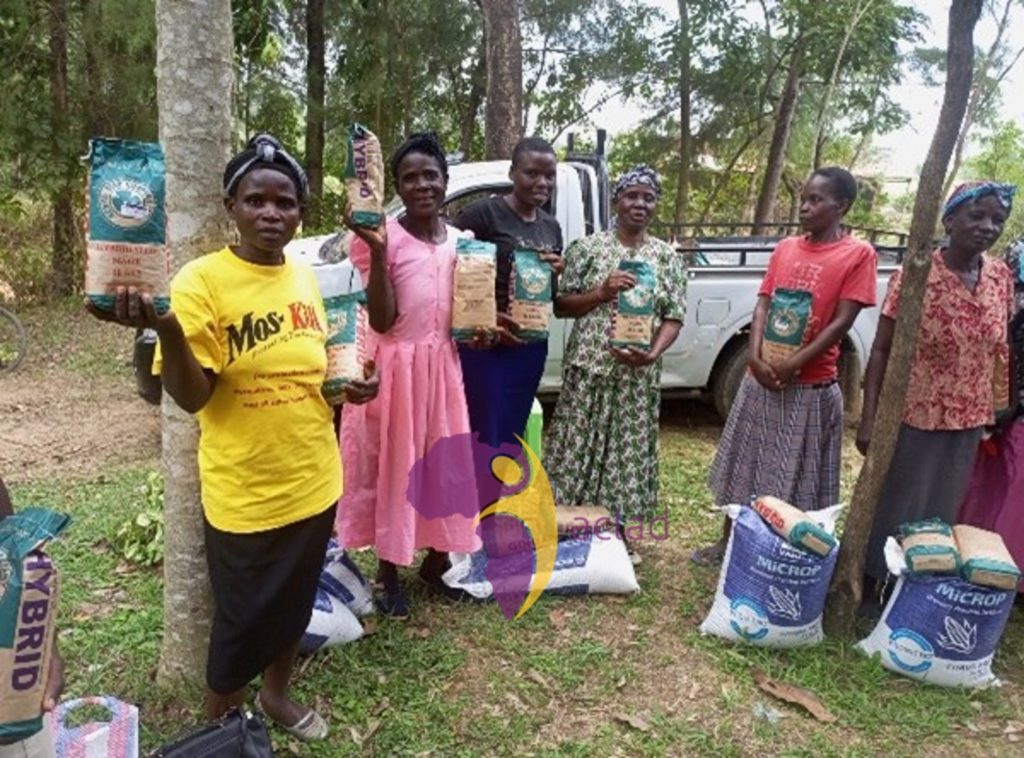Supporting local farmers with sustainable agriculture

The tide is changing and planting season in Kenya is just around the corner. That said, we at ACLAD are helping our farmers engaging in conservation agriculture prepare for this by distributing certified maize seeds and fertilizer to our groups in Makuche and Lumakanda in Kakamega County . Among success factors of the implementation of conservation agriculture measures are farmer engagement, creation of favourable conditions to enable sustainability and adaptation on vulnerable households.

A sustainable agriculture must provide a fair and reasonably secure living for farm families. It should minimize harm to the natural environment, maintain basic natural resources such as healthy soil, clean water, and clean air as well as support viable rural communities while at the same time ensuring fair treatment of all people involved in the food system, from farm workers to consumers. In addition, given that agriculture is one of the most climate-sensitive sectors under pressure to reduce greenhouse gas emissions, we encourage our farmers to develop sustainable strategies such as conservation agriculture and other strategies which will also aid even the most vulnerable farmer both cope and counter the current and future impact of climate change as well as protect their livelihoods.
According to the Food and Agriculture Organization (FAO), small-scale producers provide over 70% of the world’s food requirements while agribusinesses are important avenues of employment and income generation globally. FAO opines that, and we agree that by improving the sustainability of food value chains, millions of resource-poor households can benefit from and ensure they get access to nutritious food at all times, thereby reducing the chances of malnutrition within the households.

Catherine Muteithia
ACLAD Research and Communications Assistant
